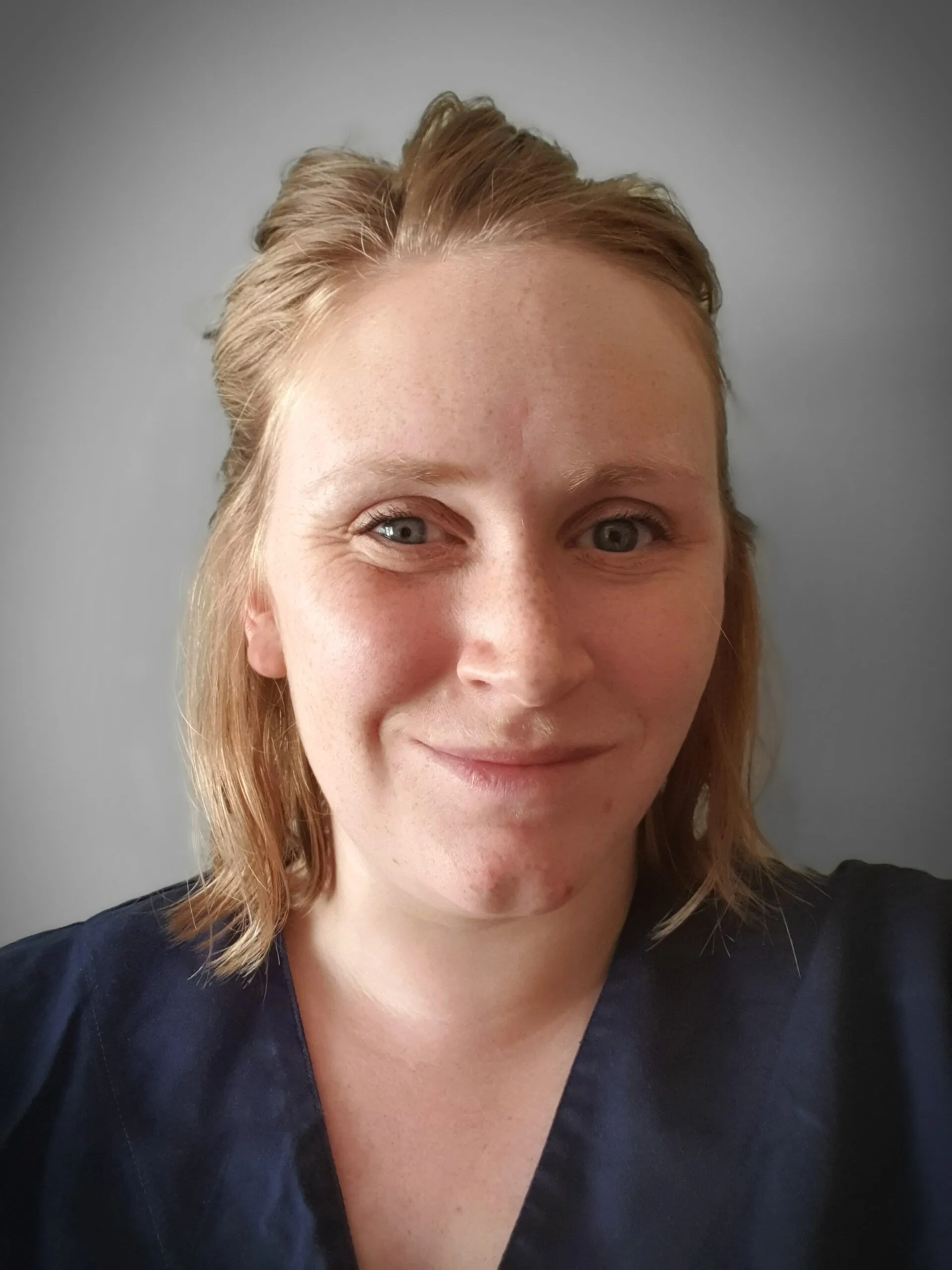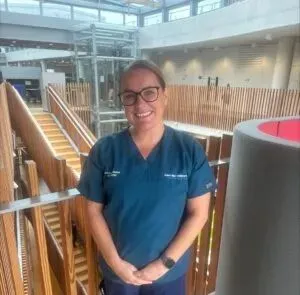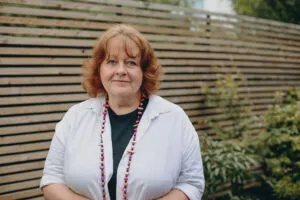Air pollution is estimated to cause 29,000–43,000 deaths each year in the UK, with children, older people and those living in the most deprived communities worst affected.
For nurses, the impact is unmissable: preventable hospital admissions are rising, chronic respiratory conditions are worsening and poor housing conditions are trapping patients in a cycle of illness.
“I feel like the tides are turning a bit, but I feel like it just needs to be embedded in everyday practice”
Laura King
However, a quiet revolution is under way. From groundbreaking clean-air clinics and education-based work to nurse-led housing interventions, nurses are no longer simply managing the fallout from toxic air – they are trying to tackle the root causes.
In June, the Royal College of Physicians warned that polluted air shortens the average lifespan by 1.8 years, meaning it sits just behind leading causes of death, such as cancer and smoking.
Meanwhile, the Royal College of Paediatrics and Child Health (RCPCH) also raised the alarm, noting that air pollution was the second-leading risk factor for death in children under five in the UK and worldwide.
Tragedies such as the death of nine-year-old Ella Adoo-Kissi-Debrah – the first person in the UK to have air pollution recorded as the cause of death – have fuelled public concern about toxic air.
Similarly, two-year-old Awaab Ishak died from a respiratory condition caused by mould in his Rochdale home.
Against this backdrop, two specialist clean-air clinics – in Liverpool and London – are exploring ways to reduce children’s exposure to environmental hazards and air pollution.
At the Royal London Hospital in Whitechapel, the clinic runs once a month.
It offers children and families a full clinical assessment, followed by a home visit to install air-quality monitors, gather photographic evidence of housing conditions and conduct mould sensitisation testing.
The information helps clinicians build a bespoke care plan, while also adding to the evidence base around child health and air pollution.
Laura King, clinical nurse specialist in paediatric asthma at Barts Health NHS Trust, works closely with the clean-air clinic team.
She described how residents in the London Borough of Tower Hamlets were facing a “toxic triad” of deprivation, poor health literacy and air pollution.
“You can smell the pollution. You can feel it,” she told Nursing Times.
“I’m someone that doesn’t have asthma and I don’t have respiratory problems. You can [only] imagine how it feels for a child.”
When children arrive in accident and emergency with severe asthma attacks, Ms King noted that, once nurses had “nailed down the basics”, like inhaler technique or adherence, they were left with “factors that [they can’t] control”, such as poor air quality, overcrowded housing, damp and mould.
“Environmental triggers are so hard to avoid,” she explained, adding: “If you live, for example, in Canning Town [or] Newham, [or] any of the real hotspots, it’s pretty much impossible to avoid pollution.”
Of the children seen in the clean-air clinic so far, 80% have mould exposure at home, and most live near a busy road and have gas cookers, Ms King said.
At times, she admitted it was “really frustrating” having to fight against systemic issues like poor housing.
“When you see the sharp end of it…you sometimes do feel like you’re really up against it,” she said. “We do everything we can, but [if] you live in a place that is making you sick, what [can] we do? We all get quite frustrated.”

Laura King
Ms King described the clean-air clinic as a symbol of change in how healthcare could tackle the issue.
“We’ve got all this wonderful work that is happening,” she said. “I feel like the tides are turning a bit, but I feel like it just needs to be embedded in everyday practice.”
She called for all clinicians to be “on the same page” in terms of understanding how air pollution impacts the health of vulnerable populations, adding: “I’m certainly not an environmental health expert, but I’m a nurse. We see the sharp end of it, so we learn about it.”
The Whitechapel clinic will soon employ a research nurse to expand its outreach and data-gathering processes.
Ms King said there was “something about the skills of a nurse” that were essential to the programme’s success.
She added: “We look at the holistic picture, we look at a bit of everything. I think families find us more approachable.”
A few hundred miles away in Liverpool, respiratory nurses at Alder Hey Children’s Hospital are taking a proactive approach to environmental triggers, often before families need to be referred to the specialist clean-air clinic.
Jennifer Holden, a clinical respiratory nurse manager and advanced paediatric nurse practitioner, told Nursing Times how her team integrates housing checks into their routine appointments.
“It’s really important that we get a really good history,” she said.
One of the first questions nurses ask is whether the home has damp, mould or condensation. If families disclose poor housing conditions, the team steps in immediately.
Ms Holden said: “We might get families that say [they have] been fighting this for a long time and [they] feel that the symptoms are probably being exacerbated by the housing conditions.
“In that situation, we will then gain consent from the families to contact their housing companies directly.”
In most cases, Ms Holden said housing companies responded quickly – often within 48 hours – and many issues were resolved without ever needing to escalate the case to the clean-air clinic.
“Because there’s a massive demand for the clean-air clinic, we are in a good position where we can start the ball rolling,” she explained.

Jennifer Holden
“We have had some really good success where families have actually been moved out of their house because the housing conditions have been so bad.”
The early intervention model should be promoted more widely, argued Ms Holden, warning that inaction can have lasting consequences.
Children are especially vulnerable to air pollution because their organs are still developing, they breathe faster and are closer to the ground, where pollutants are highly concentrated.
Effects include asthma, reduced lung function, respiratory infections and allergies, as well as increased risks of chronic illness in adulthood.
Ms Holden argued that many children with asthma “will be on more treatment than they might need to be”, because of poor housing conditions.
“If we can get the housing on board and we can get the symptoms managed, these children with the wet coughs will get better and they’ll grow out of it.
“But if we get children who continue to live in those conditions, and we can’t manage the symptoms, [then] there’s a chance that they may go on to develop bronchiectasis.”
Meanwhile, for Debby Waddell, respiratory nurse specialist at Asthma + Lung UK, raising awareness about clean air has been a personal and professional priority for more than two decades.
She recalled when, in 2014, a Saharan sandstorm came to the UK and “everybody was panicking” about the impact it would have on people’s lungs.
“I was really struck by how everybody was in such a dither about knowing what to do because they could see it.
“I started to think about [how] air pollution is there all the time. We don’t worry about it because we can’t see it. So, I started to think about it as a bit of an invisible killer.”
Ms Waddell now leads the charity’s clean-air champions project, which combines air-quality education with school-based action.
The initiative works with 200 schools and offers free air-quality monitors, curriculum-aligned learning resources and hands-on support from health professionals.
The charity has been “blown away” by the interest of young people in improving air quality.
“The scale is growing,” she said. “The feedback we’re getting around raised awareness is huge. We love the thought of getting children involved in campaigns like stopping [the]idling of cars outside school.”

Debby Waddell
Ms Waddell said she was particularly passionate about equipping clinicians to speak confidently about polluted air.
“Health professionals aren’t necessarily talking to their patients about air pollution,” she said, citing research from the Clean Air Fund, which found that many lacked knowledge, confidence and competence to do that.
She added: “It’s being recognised now that conversations about air pollution – both indoor and outdoor air quality – are just as important as the conversations we have about other lifestyle [concerns such as] housing and alcohol and smoking.
“Just because we can’t see it, [it] doesn’t mean it’s not bound to harm us.”
The recently published 10-year health plan for England, Fit for the Future, set out several commitments to address the environmental determinants of health.
A government spokesperson told Nursing Times: “Air pollution is a public health issue, and we are committed to tackling this issue across the country.
“We have already provided £575m to support local authorities to improve air quality, and are developing a series of interventions to reduce emissions so that everyone’s exposure to air pollution is reduced.”
Importantly, Ms Waddell noted that there were “so many resources out there”, along with organisations and initiatives, that could guide conversations about clean air, including the Global Action Plan, Clean Air Fund and the Department for Environment, Food and Rural Affairs’ UK air pollution forecasts.
She highlighted that nurses in all specialties could raise the issue of clean air with their patients: “Whatever area of nursing you’re in, you may have a part to play,” she said.

